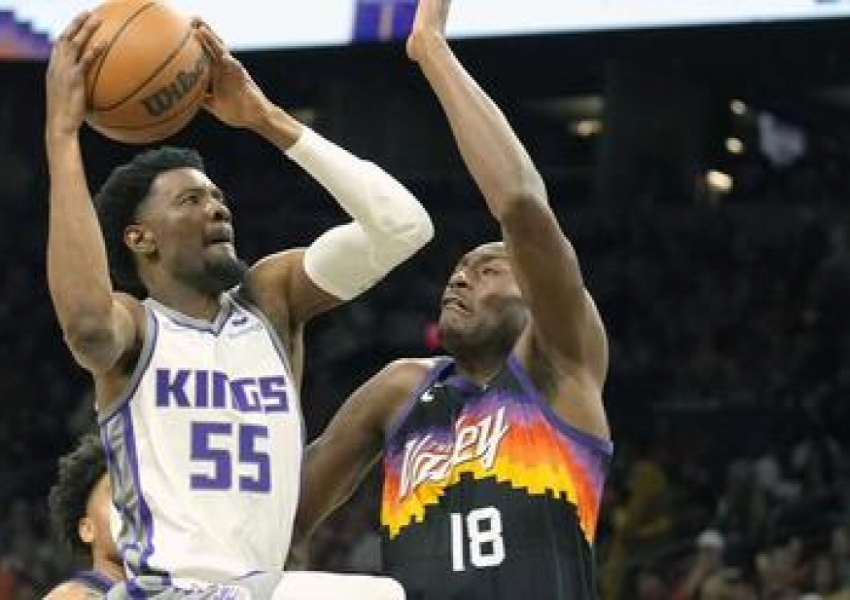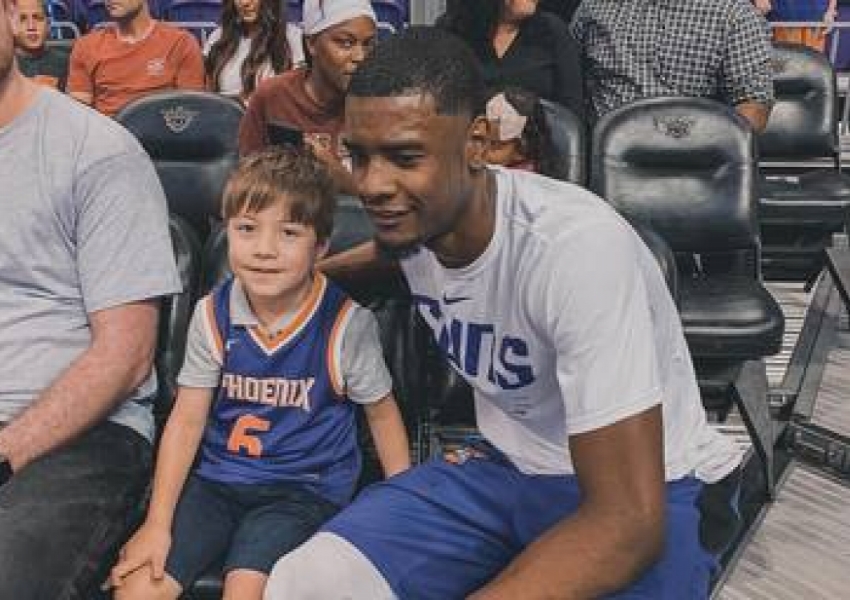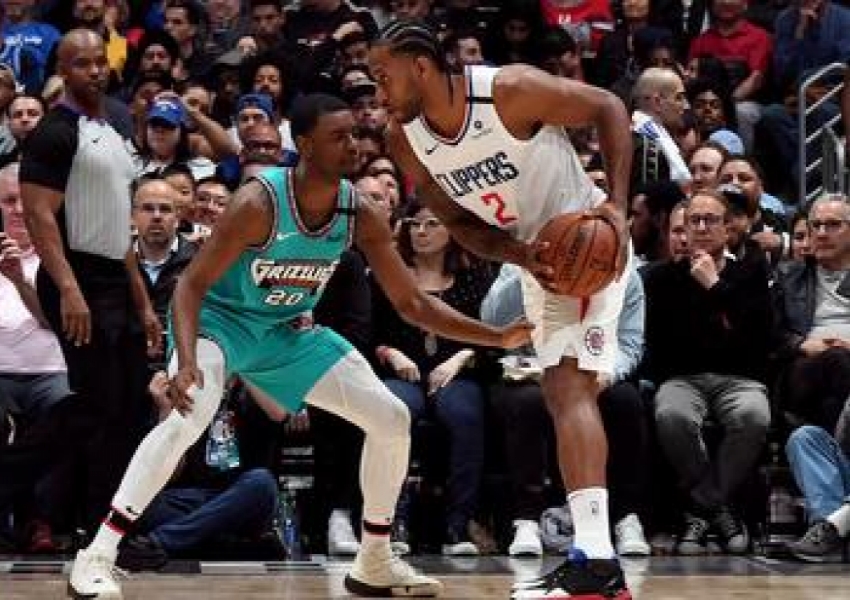The Tragic Genius: From NBA Prodigy at 20 to NBA Reject at 25, Living a Life of Lies
In the world of sports, the phrase "what could have been" is often a haunting one, but few athletes embody this more than Josh Jackson. A prodigy from a young age, Jackson’s story is not one of linear success. Instead, it is a tale woven with lies, manipulation, and a seemingly endless quest to fit a narrative that was never truly his. By the age of 20, Jackson was in the NBA, a rising star destined for greatness. By 25, he had been discarded, a cautionary tale of a talent destroyed by the very system that once built him up. His journey, filled with personal turmoil, conflicting identities, and broken promises, reveals how the pressures of the basketball industrial complex can shatter a young man’s future.

Born in Southfield, Michigan, in 1997, Josh Jackson’s early life was marked by tragedy and instability. His father was never part of his life, and his mother, April, was a former track star who fell into a life of crime. She often found herself in and out of prison, which left Jackson to grow up in a government-subsidized housing unit, surrounded by poverty and the harsh realities of urban life. His first pair of basketball shoes was given to him by a probation officer, a twisted symbol of the life he was born into. His athleticism, passed down from his mother, was the only thing that seemed to promise him a way out, a potential escape from his family’s struggles. But basketball was more than just a passion—it was his mother’s last hope for redemption.

As Jackson grew older, his mother’s ambition for him became more and more consuming. To her, he wasn’t just a son—he was the vessel through which her past mistakes would be forgiven. April pushed him relentlessly, taking him to basketball courts at all hours of the day and night, forcing him to train long after other kids had gone home. She would drill him on footwork beneath streetlights, shouting at him to work harder, to never stop, even when his body could no longer keep up. "Do you want to end up like me? Do you want to spend your life in prison?" she would yell, fueling his fear, and turning basketball into a form of psychological torment. For Jackson, the sport he once loved became a source of deep-seated dread, a constant reminder that his worth was tied to his performance.

While his mother’s obsession with his basketball career was suffocating, it was also the one thing that kept them afloat. The family moved constantly, fleeing from debts and legal issues, and Jackson attended multiple schools, never able to settle. By the time he was 14, his basketball talent was undeniable, and scouts began to take notice. But instead of being guided by mentors who cared for his well-being, Jackson was surrounded by people eager to capitalize on his potential. Agents, trainers, and even the media began to craft a narrative around him, one that didn’t match who he was, but rather the image they wanted to sell. They promoted Jackson as a player with the "frame of Kevin Durant and the motor of Russell Westbrook," an extraordinary combination of skills and attributes. Yet they conveniently ignored the glaring fact that Jackson’s emotional control was volatile and unpredictable. His image was sculpted by brands like Nike, which created the persona of the “left-handed magician,” even though Jackson was right-handed. His trainers would coach him to act out for the cameras, punching his chest and screaming to sell the image of a future NBA superstar. In reality, Jackson was an artist, not a showman. His true self, the quiet, introspective young man with a love for abstract art, was hidden behind a carefully constructed mask.
This marketing campaign worked, and Jackson rose to prominence as the nation’s number one high school recruit. He entered the University of Kansas with high expectations and, despite the growing chaos surrounding him, played a standout freshman season. He was selected by the Phoenix Suns as the fourth overall pick in the 2017 NBA Draft, a dream realized. However, the lies that had been sold to him and the world began to catch up with him. Jackson, still a kid in many ways, wasn’t ready for the reality of professional basketball. The constant pressure to live up to an image that wasn’t his own began to erode his confidence and performance.
As an NBA rookie, Jackson faced immediate struggles. His shooting form was unrefined, and he stubbornly refused to change it, citing his Nike-created persona of the “left-handed magician” as the reason for his refusal to adapt. On the court, his defensive potential, which was his true strength, was compromised by a lack of discipline and the loss of the star treatment he had grown accustomed to. The once-promising player who had been hailed as a future star started to unravel. Off the court, his life was just as chaotic. His mother, still involved in illegal activities, found herself in legal trouble once again. Meanwhile, Jackson’s own academic history came under scrutiny, with allegations of cheating during his high school years further tarnishing his reputation.
As Jackson’s professional career spiraled, his emotional instability became more apparent. His behavior off the court grew more erratic. In one infamous incident, he was arrested for illegally entering his ex-girlfriend’s home. The police found walls filled with his attempts to replicate Edvard Munch’s The Scream, but in his version, the eyes of the figures were replaced with basketballs. This bizarre image served as a metaphor for Jackson’s fractured identity: the basketball star he had been sold as versus the real person beneath the surface. From the Memphis Grizzlies to the Detroit Pistons to the Sacramento Kings, each team hoped to fix the puzzle that was Josh Jackson, but with each passing year, his anxiety only deepened, and his talents became more and more buried beneath the weight of his contradictions.
In the summer of 2022, Jackson found himself in the G-League, dominating the competition with 21 points per game, but still, no NBA team came calling. His frustration boiled over, and on his Twitter, he posted a cryptic message: “There are 24 Josh Jacksons in me, but they’re looking for the 25th.” It was a desperate cry for help from a young man who had spent his life living in the shadow of a false narrative. The tragedy of Jackson’s career lies in the fact that he was never allowed to be himself. From the moment his name was first written down as a high school star, he became a product, shaped by others’ desires, never given the space to develop his own identity.
Jackson’s story is a cautionary tale of how the basketball industry, with its need to create stars at any cost, can destroy a young person’s sense of self. His talent was real, but the system that built him up was equally destructive. Jackson’s life was defined by a series of lies—lies told by those around him, lies told to him, and lies he told himself to survive. Now, at 25, his NBA career is all but over, and he is left to reflect on what could have been. His rise and fall serve as a reminder of the dangers of placing too much emphasis on a young athlete’s potential without considering the person behind the talent.
When we look back at Jackson’s high school dunks or remember his time at Kansas, we must also acknowledge the manipulations that built his career. His story, one of talent lost to the pressures of fame, is a somber reflection of how easily a young athlete can be consumed by the very industry that promised them success. Jackson’s journey shows us that sometimes the greatest tragedy isn’t failure on the court, but the inability to find who you truly are.
Copyright Statement:
Author: focusnba
Source: FocusNBA
The copyright of this article belongs to the author. Reproduction is not allowed without permission.
Recommended Blog
- $70 Million a Year! Is 30-Year-Old Nikola Jokić Worth It?
- 24+8+8 Per Game! How Should We Evaluate 40-Year-Old LeBron James?
- From Locker Room Wildcard to Championship Firewall: Why Bobby Portis Is Worth $48.5M Over 4 Years
- The Leaders Are Gone, The Team Rebuilds in a Month, Yet Finds Itself in the Playoff Hunt
- The Ultimate Underdog Story: From Unranked High School Player to NBA’s Elite 3D Threat
- The "Grim Reaper" from the Ghetto: From Abandonment to Underestimation, to Being Revered
- 52+10+8+5! What Level Is Curry At Right Now?
- Plus-Minus +219! Did Pelinka Pull Off Another Masterstroke by Acquiring Finney-Smith?
- Late-Season Surge! Can 2024’s Top Pick, Rashaé, Still Win Rookie of the Year?
- Unstoppable! What Level Is Jalen Green Really Playing At With 25.8 Points Over the Last 10 Games?
Hot Blog
- A Complete Transformation! Does Cade Cunningham Deserve an All-NBA Spot This Season?
- Awkward! Did Anthony Davis Just Expose the Mavericks’ Hypocrisy—and Is He Thinking About Leaving?
- 18 Misses, Just 2 Makes: Donovan Mitchell’s Worst Game of the Season—Is He Really MVP-Worthy?
- What Looked Like a Steal Turned Into a Disaster: Suns’ Offseason Gamble Backfires, $15 Million Down the Drain
- LeBron's Game-Winning Shot! Streak Almost Broken, One Play to Redeem Himself!
- Life After the Lakers: What’s Happening to D’Angelo Russell?
- Another Season Lost! Robert Williams' Brutal Injury Woes: Can He Still Prove Himself?
- Peak Zubac! Just How Good Is the Clippers' 28-Year-Old Big Man?
- Only Six Games Left! Why Haven’t the Lakers Converted Goodwin’s Contract Yet?
- DNP Streak Continues! Just How Bad Has Alex Len Been for the Lakers?